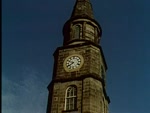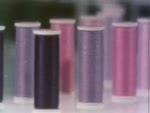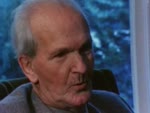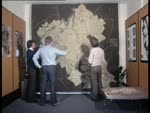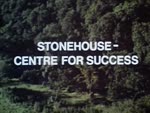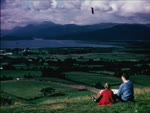GALLIMAUFRY - A CUMBERNAULD POEM

This video is not available to view remotely
Video 1 (currently displayed video)
Full length video - full length available onsite
Video 2
A wry poetic look at the ‘improvement’ in lifestyles in new towns compared with the tenement life of Glasgow. (clip)
Please read Understanding catalogue records for help interpreting this information and Using footage for more information about accessing this film.
Title: GALLIMAUFRY - A CUMBERNAULD POEM
Reference number: T2151
Date: early 70s
Production company: Scottish Television
Sound: sound
Original format: 16mm
Colour: col
Fiction: non-fiction
Running time: 2.37 mins
Description: Visuals of Cumbernauld from the early 1970s, including a nice shot of the old village, to accompany a poem on the developments there.
Shotlist: [no title or credits] M/s of high rise flats (0.08) Pan down large stone Celtic cross then across to right to encompass the old Cumbernauld village street (0.17) Pan from exts of pub down to a nearby close (0.25) A modern church (0.28) Gvs of the shopping centre, Cumbernauld (0.42) A row of modern housing (0.45) [Leader] (0.49) More high rise flats (0.55) housing being constructed (1.11) An old woman leans out from her window (1.18) Two children come towards the camera and lounge up against the railings (1.23) Pan across the new roads from tower block to tower block (1.54) Gvs of the railway tracks (2.03) Zoom in on the back door of a new house (2.11) Poet [as yet unidentified] to camera, reciting final lines of poem, then walks off (2.37)

